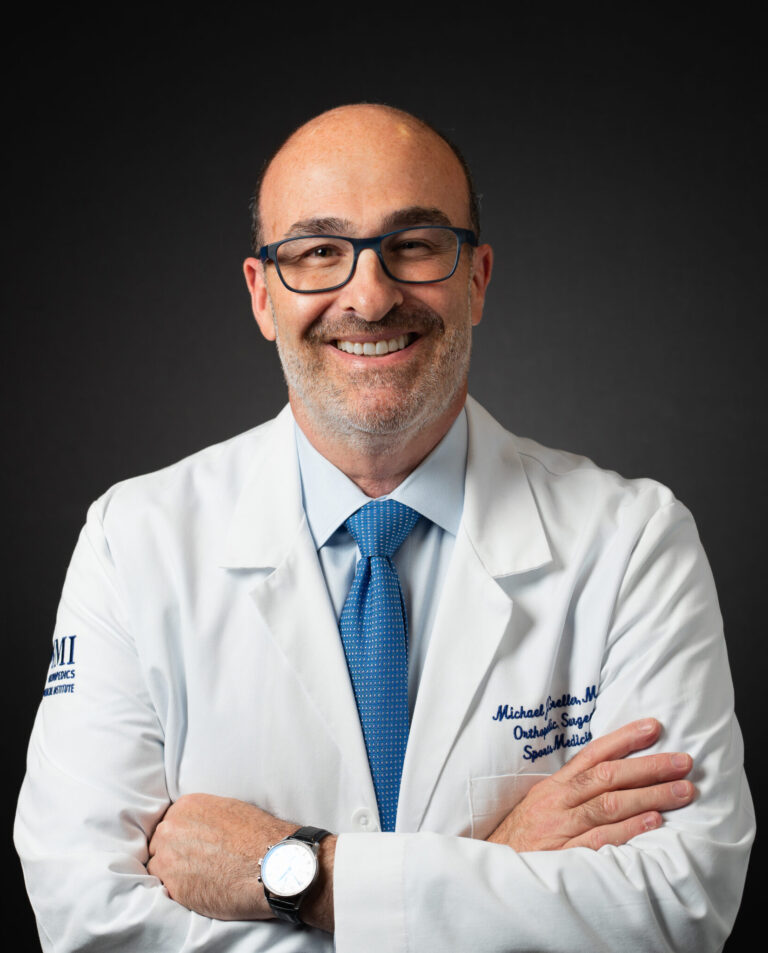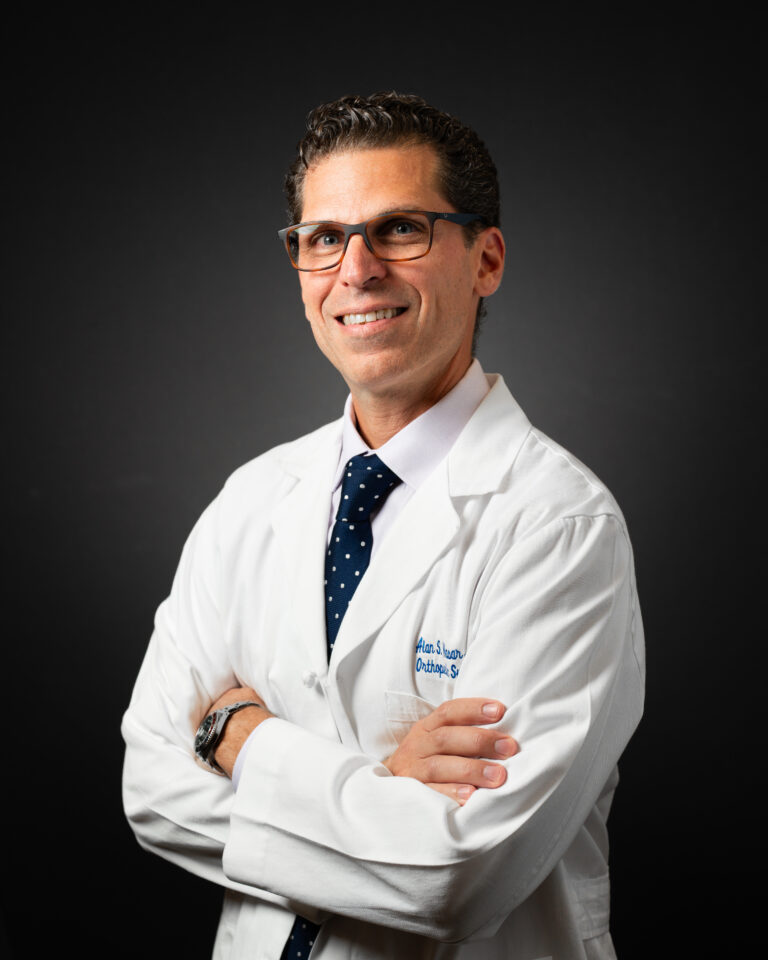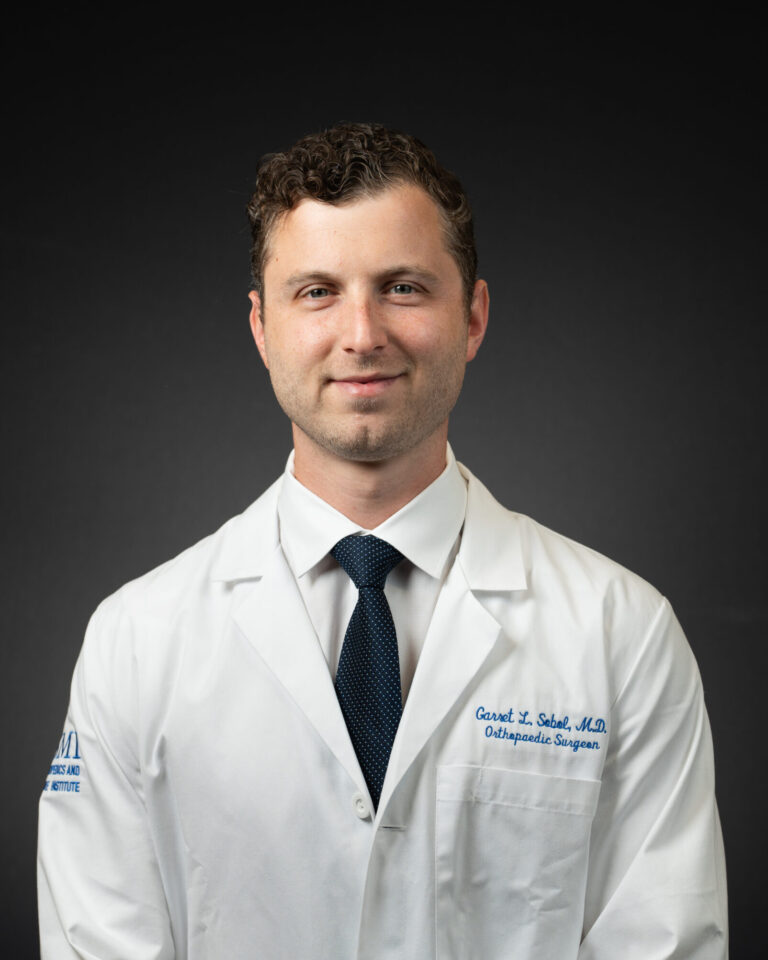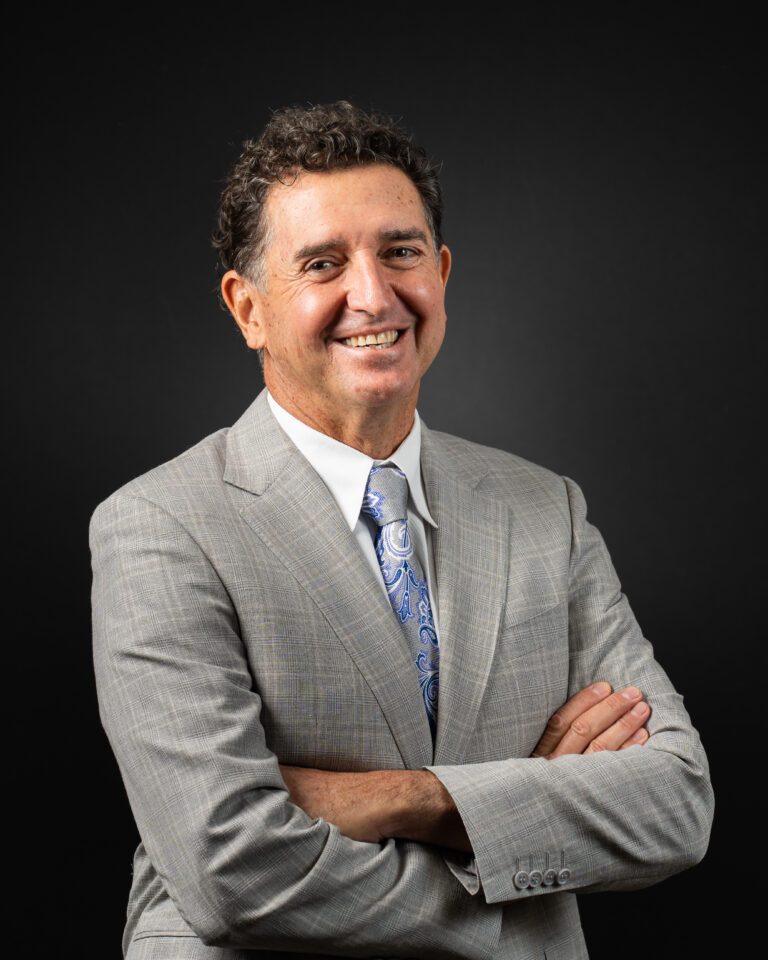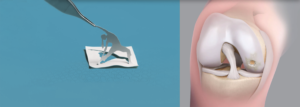
MACI – Cartilage Restoration
Matrix-Associated Autologous Chondrocyte Implantation (MACI) is a surgical option to repair a joint surface cartilage injury in your knee. This procedure is typically used for larger areas of damage or where other cartilage repair procedures have failed. This treatment uses your body’s own cells to repair the articular cartilage in your knee.
How is Matrix-Associated Autologous Chondrocyte Implantation Done?
- A sample of your joint cartilage cells (chondrocytes) is taken arthroscopically and sent to an FDA-licensed laboratory where they will grow 10-times to nearly 40 million cells over a five-week period.
- Your cells are tested and then embedded onto a special patch and delivered on the day of your procedure for your doctor to implant.
- During the implant surgery, your surgeon will make a small incision in your knee to see the damaged cartilage. After careful preparation of the damaged area, the patch is matched to sit right into the cartilage defect. Millions of your own cells then create a durable repair tissue that fills your damaged area.
Your physician will prescribe a rehabilitation program specifically for your situation depending on the size and location of your cartilage damage.
Who is a Candidate for Cartilage Restoration?
- Are you a patient between the ages of 17-55 without a diagnosis of arthritis?
- Do you have significant knee pain limiting your ability to play sports or perform daily activities such as household duties or driving a car?
- Are you dissatisfied with the results of previous treatments you have had for your knee pain?
- Are you willing to dedicate yourself to a rehabilitation program following surgery?
If you answered yes to the above questions, please contact a cartilage restoration specialist at the Cartilage Restoration Center to discuss your treatment options. Schedule An Appointment Today
Find your Provider


